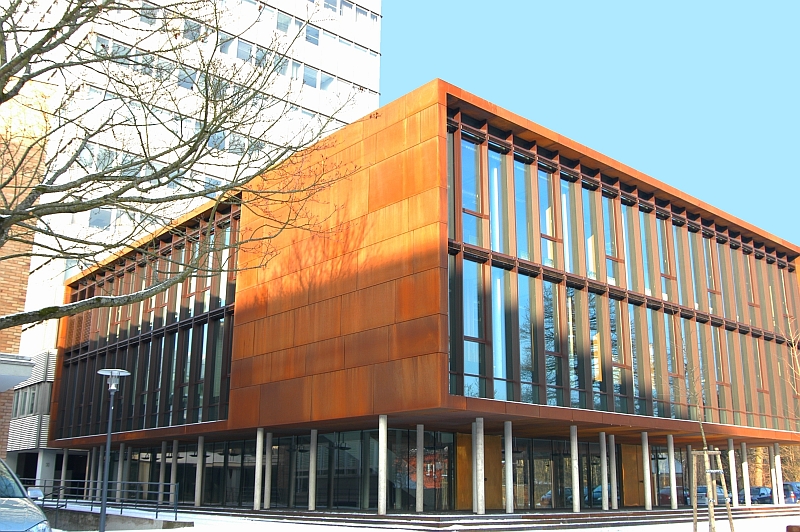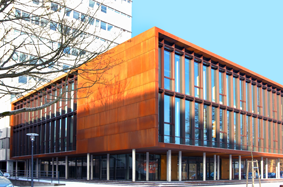About the DFG Center for Functional Nanostructures (CFN)

Nanoscience Turns into Nanotechnology
The DFG-Center for Functional Nanostructures (CFN) represents both the name of our program and its vision: Nanoscience needs to be turned into nanotechnology before it can reach its full potential as a key technology of the 21st century. The CFN plays a role in the first crucial steps of turning nanoscience from a pure science to a practical science with real-world applications.
Our aim is to realize functional nanostructures, with focus on optical, electronic, biological, and energy conversion/storage functions. If any of these applications have just a small fraction of the impact that silicon technology (emerging from "Silicon Valley") has had on our society, the upper Rhine valley might soon be more widely known as "Nano Valley".
The CFN — a Bridge Builder
Established on July 1st 2001, the CFN is funded by the Deutsche Forschungsgemeinschaft (DFG, German Research Foundation), the State of Baden-Württemberg, and the Karlsruhe Institute of Technology (KIT). In 2006, the CFN also became a "Cluster of Excellence" in the German Excellence Initiative. Presently, about 250 scientists in 5 interdisciplinary CFN research areas collaborate to work in 17 projects, divided into 88 subprojects. In adition, 4 "CFN Young Scientist Groups" are fully funded by the CFN.
The CFN brings together researchers from KIT Campus South in Karlsruhe (former Universität Karlsruhe (TH)) and KIT Campus North in Eggenstein-Leopoldshafen (former Forschungszentrum Karlsruhe GmbH). In 2009, the CFN building was inaugurated on Campus South and now houses the CFN Nanostructure Service Laboratory as well as the CFN Young Scientist Groups.

The CFN Building - completed in 2009